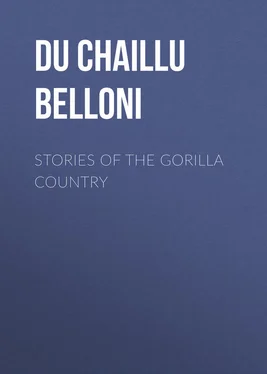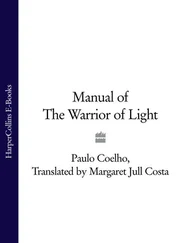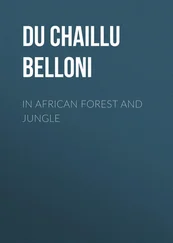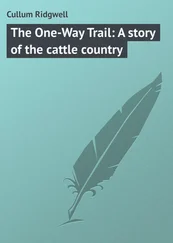Paul Du Chaillu - Stories of the Gorilla Country
Здесь есть возможность читать онлайн «Paul Du Chaillu - Stories of the Gorilla Country» — ознакомительный отрывок электронной книги совершенно бесплатно, а после прочтения отрывка купить полную версию. В некоторых случаях можно слушать аудио, скачать через торрент в формате fb2 и присутствует краткое содержание. Жанр: foreign_antique, foreign_prose, на английском языке. Описание произведения, (предисловие) а так же отзывы посетителей доступны на портале библиотеки ЛибКат.
- Название:Stories of the Gorilla Country
- Автор:
- Жанр:
- Год:неизвестен
- ISBN:нет данных
- Рейтинг книги:3 / 5. Голосов: 1
-
Избранное:Добавить в избранное
- Отзывы:
-
Ваша оценка:
- 60
- 1
- 2
- 3
- 4
- 5
Stories of the Gorilla Country: краткое содержание, описание и аннотация
Предлагаем к чтению аннотацию, описание, краткое содержание или предисловие (зависит от того, что написал сам автор книги «Stories of the Gorilla Country»). Если вы не нашли необходимую информацию о книге — напишите в комментариях, мы постараемся отыскать её.
Stories of the Gorilla Country — читать онлайн ознакомительный отрывок
Ниже представлен текст книги, разбитый по страницам. Система сохранения места последней прочитанной страницы, позволяет с удобством читать онлайн бесплатно книгу «Stories of the Gorilla Country», без необходимости каждый раз заново искать на чём Вы остановились. Поставьте закладку, и сможете в любой момент перейти на страницу, на которой закончили чтение.
Интервал:
Закладка:
Have you known what hunger is – real craving hunger? I can assure you it is a dreadful feeling.
During that time of the year, this people had half the time nothing to eat but the nut of a kind of palm.
This nut was so bitter I could scarcely eat it. It is shaped like an egg, with rounded ends. To prepare it for eating, it is divested of its husk, and soaked in water for twenty-four hours, when it loses part of its exceedingly bitter taste, and becomes tolerably palatable, that is, to a starving man. Sometimes hunger will make them eat the nut without soaking it. I have done so myself, when lost in the forest. It is dreadfully disagreeable.
Now and then, the women succeeded in getting a few little fish in the streams, and gave me some. I could bear a good deal, for I had firmly resolved to go into the cannibal country.
These Mbondemos are continually moving their villages. Mbéné has moved his village three times within a few years. I asked him why he made these frequent changes. He said he moved the first time because a man had died, and the place was "not good" after that event. The second time he was forced to move because they had cut down all the palm trees, and would get no more mimbo (palm wine), a beverage of which they are excessively fond. They tap the palm, just as the maple tree is tapped in America, only they tap the tree at the top. This palm wine has somewhat of a milky colour; and, when drunk in great quantity, it intoxicates. The palm trees are very plentiful all over this part of the country, and it seems easier for them to move than to take care of the trees surrounding their settlements, useful as they are to them; for they furnish not only the wine they love, but the bitter nut I mentioned before, which often keeps them from actual starvation. When the tree is cut down they get what we call the palm cabbage which grows at the top. When cooked this palm cabbage is very good.
A country which has plenty of palm trees, plenty of game, a good river or rivulet, and plenty of fish, is the country for a Mbondemo settler or squatter.
In these forests there is a vine or creeper which I might call the traveller's vine. If thirsty you may cut it, and within less than a minute a tumblerful of water will come out of it. This vine hangs about in the forest, and seemed to me to grow without leaves. What a capital thing it would be if water were not abundant in this country! The water procured from it has hardly any taste, and is perfectly pure and limpid.
Being unable to endure the continual hunger, I called Mbéné, and told him that his place had no food to give, and he must take me to a country where there was something to eat, and which would be on my way to the Fan country. Good Mbéné said, "Spirit, I will try the best I can to take you where you want to go. I will send some of my people with you."
In the meantime, Dayoko's people had all returned to their village. These forests had no game. I spent hour after hour scouring the forest, but I could see nothing, except birds, some of which were extremely pretty. I am afraid that if I had succeeded in killing a snake I should have eaten it, as I felt desperately hungry. I did not like the bitter nuts; so it was agreed that Mbéné's brother Mcomo, together with several of his people, should accompany me as far as the country of the Fan tribe. I could hardly believe such good news to be true.
Mbéné's wife always cooked my food. She was a dear good old woman, and I gave her a fine necklace of beads when I left. She was delighted with my present. They were big white porcelain beads of the size of a pigeon's egg. One day Mbéné succeeded in getting a fowl for me. His wife cooked it; she made soup, and put plenty of cayenne pepper into it. I had also some plantain. How I enjoyed this meal! the more so that it was probably the last I should get for a good many days, unless we were unusually lucky, and should kill some antelopes or elephants on our road to the Fan country.
Elephant meat is execrable, as you would say on tasting it. But as you may not have the chance I will tell you by-and-by how it tastes.
As much food as possible was collected for our journey, and at last everything was ready.
CHAPTER VII
Before we renewed our journey the natives had done all they could to gather provisions; but the result was poor enough. By going to distant villages they had succeeded in getting a few bunches of plantain.
Mcomo, Mbéné's brother, backed out. He said he was not going into the cannibal country to be eaten up. But I must tell you that Mbéné had some friends among the cannibals. And he sent with me two of his sons called Miengai and Makinda, together with twelve good hunters, and six women who were the wives of some of the men. The women carried the provisions, etc.
I took seventy pounds of shot and bullets, nineteen pounds of powder, ten pounds of arsenic for preserving the birds and animals I should kill, for I knew I should probably succeed in getting some new specimens.
When all was arranged, when everybody had taken leave of all his friends, for this was a very great journey, and they came back half-a-dozen times to take leave over again, or say something they had forgotten, when all the shouting and quarrelling about who should carry the smallest load was over, we at last got away.
We had left the camp of Mbéné behind us at a distance of about five miles when we came to the banks of a little river called the Noonday, a clear and beautiful stream. I was ahead of the party with Miengai, and was waiting for the others to come up before crossing. As we stood on the banks I spied a fish swimming along. Immediately the thought came into my mind, "How nicely that fish would taste if I could get it and boil it in a pot over the fire!" I fired a charge of small shot into it; but no sooner had I pulled the trigger than I heard a tremendous crash on the opposite bank about six or seven yards off. Small trees were torn down violently, and then we heard the shrill trumpetings of a party of frightened elephants. They were probably sleeping or standing in a dead silence on the opposite bank in the jungle. I was sorry I had fired, for after crossing the stream we might have killed an elephant. Poor Miengai was terribly vexed. "I am sure," said he, "they had big tusks of ivory."
Our party, as soon as they heard the gun, came up in haste, and asked what was the matter. When they heard the story they began to lament our not killing an elephant; for then we should have had meat enough for the whole journey; and they shouted with one accord: "Elephant meat is so good!"
This exclamation made me wonder how an elephant steak would taste.
On we went, and got fairly into the mountainous country. The hills became steeper as we advanced. How tired I felt; for the diet at Mbéné's camp had not strengthened me. These Mbondemos had a great advantage over me. They used their bare feet almost as deftly as monkeys, and hence got their foothold more easily than I.
Miengai and I were in advance. All at once he made me a sign to keep very still. I thought he had discovered a herd of elephants, or seen the traces of an enormous leopard. He cocked his gun; I cocked mine; the other men did the same; and there we stood in perfect silence, for at least five minutes. Suddenly Miengai sent a "hurrah" echoing through the forest. It was immediately answered by shouts from many voices not very far off, but whose owners were hidden from us by huge rocks and trees. Miengai replied with the fierce shout of the Mbondemo warriors, and was again answered. Thinking we were going to have a general fight, I looked carefully after my powder flask and my bullets, and found they were all right. Going a little farther on, we came in sight of the encampment of a large party, who proved to be some of Mbéné's people just returning from a trading expedition to the interior. Two men of this camp offered to go with us. Their names were Ngolai and Yeava. We consented to take them.
Читать дальшеИнтервал:
Закладка:
Похожие книги на «Stories of the Gorilla Country»
Представляем Вашему вниманию похожие книги на «Stories of the Gorilla Country» списком для выбора. Мы отобрали схожую по названию и смыслу литературу в надежде предоставить читателям больше вариантов отыскать новые, интересные, ещё непрочитанные произведения.
Обсуждение, отзывы о книге «Stories of the Gorilla Country» и просто собственные мнения читателей. Оставьте ваши комментарии, напишите, что Вы думаете о произведении, его смысле или главных героях. Укажите что конкретно понравилось, а что нет, и почему Вы так считаете.












